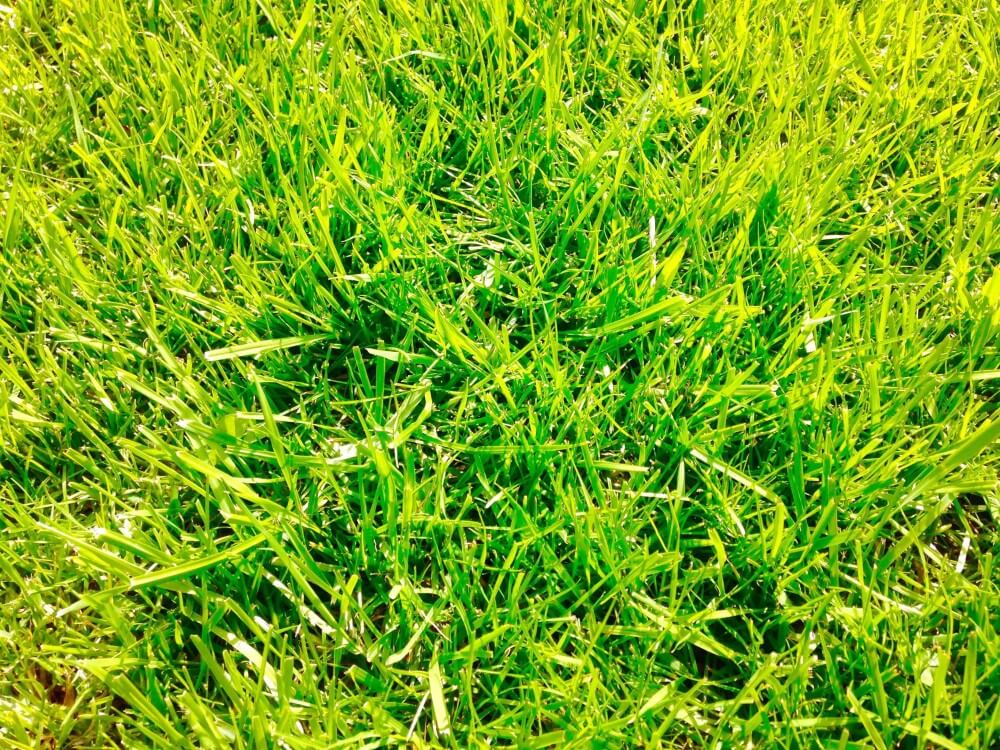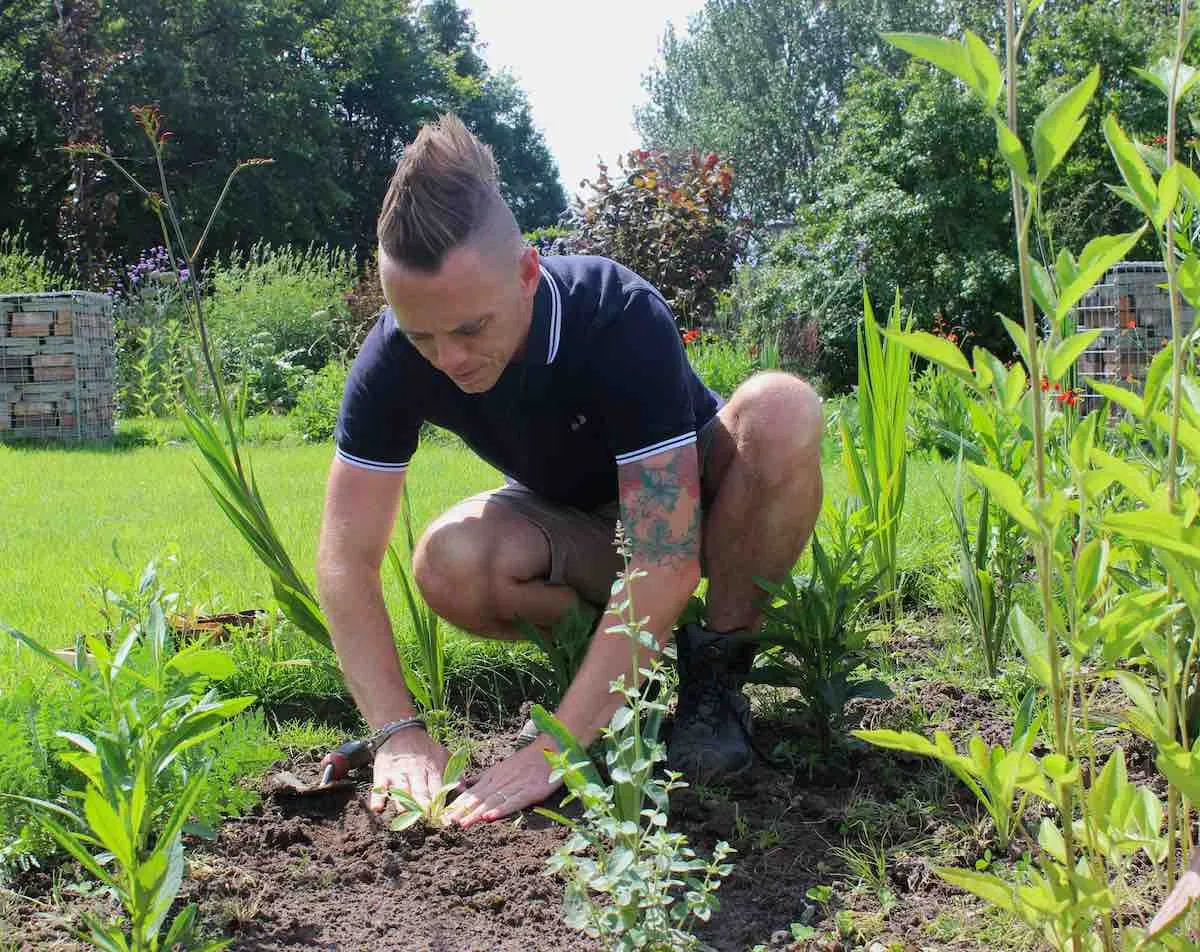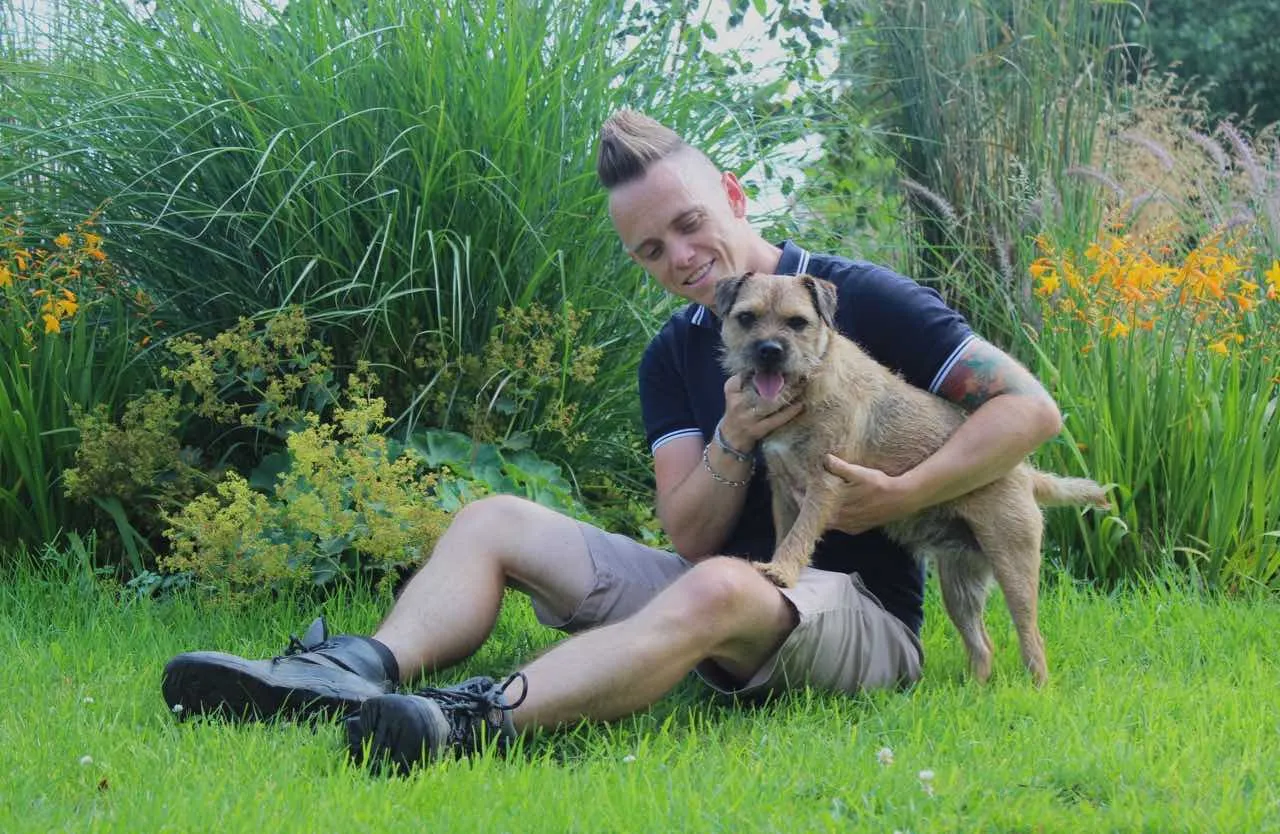Hi,
Great question about brown turf especially with new build houses!
The sad truth is that with most new build houses the gardens and surrounding 'soft landscapes' are the last things to be considered. They are also usually finished as the final push with people throwing down turf and getting them finished as quickly as possible. This results in uneven lawns, poorly laid turf or soil and then a complete lack of aftercare ie watering!
The good news for you is that garden lawns are one of the toughest plant groups in gardening. Most of the time you can recover them with a bit of TLC.

Lawns or turf are actually made up of a number of different grass species. Some are thicker than others thus tougher, other finer grasses are used to give a bit of softer texture. The beauty of this is that it's never just one Festuca (grass) genus or species that you're dealing with. Making them very tough as a unit of plant species.
Lawn Care Tips to save resources:
Most established lawns need very little care other than mowing, scarifying and the occasional once or twice a year feed. In heat waves, my advice with lawns is to ignore them. Yes watering them will keep them green but it's a huge waste of water which is a precious natural resource that's already putting excess stress on our planet. If you consider how much water treatment costs and takes from the environment to then simply spray it on a lawn to keep it green.
https://youtu.be/1aHt_-WGCPs
It's the same with lawn feeds. Manufacturers will sell you all sorts of monthly treatments and potions for the perfect lawn. However, feeding a lawn in early Spring and then again in Autumn (if at all) is sufficient. Just think that all of the nitrogen, potassium and phospherous is usually manufactured which takes co2 and other resources to produce! Then with liquid feeds most of the time is leeches out once sprayed on so a portion of it simply drips away elsewhere.
Sometimes making your own feed from comfrey tea or even a light scattering of well seived home made compost is enough to top dress your lawn. Chicken manure pellets are also useful as slow release feed if you need them but again have a manufacturing impact.
https://youtu.be/8oeYfHJvmsQ
Watering a lawn to establish it:
However, watering a lawn to get it established is different and you can't get away with throwing down some rolls of turd and then ignoring it.
You need to water a newly laid lawn at least 3x a week maybe more if its warm. Laying turf should ideally be done early spring or Autumn when it has a chance to establish its roots without being scorched. This is when the conditions are prime for lawn turf to establish. Do this in the evening when the suns not at its peak. It's better to throughly water the turf than just sprinkle it lightly which evapotrates quickly and has little effect,
Watering newly laid turf helps keep it hydrated whilst its roots establish into the ground beneath where it can tap into the ground water from rain etc. For new lawns I usually recommend watering them for 3 weeks as a minimum. Then only if there is a heat wave within the first few months after that.
What to do with brown lawns:
With your lawn I'd recommend you maybe try and lift a corner, if its rooted down then it should be fine. If not you may need to either water it more until it doesn or relay sections if its not in comntact with the ground. It's also worth checking the aspect of your garden and how much sun it gets. The turf may either be baked in full sun or in shade which is why its brown. Do a bit of investigation and then the clues will present themselves! It should be fine though as long as its been laid correctly.
It may be worthwhile watching or reading my 'How to lay a lawn' guide so you can see exactly how to look after them and check they have been laid correctly so you can rectify any mistakes.
https://youtu.be/sWLp_Y2rvJ4
I hope that helps!
Happy Gardening
Lee
Hi,
Great question about brown turf especially with new build houses!
The sad truth is that with most new build houses the gardens and surrounding 'soft landscapes' are the last things to be considered. They are also usually finished as the final push with people throwing down turf and getting them finished as quickly as possible. This results in uneven lawns, poorly laid turf or soil and then a complete lack of aftercare ie watering!
The good news for you is that garden lawns are one of the toughest plant groups in gardening. Most of the time you can recover them with a bit of TLC.

Lawns or turf are actually made up of a number of different grass species. Some are thicker than others thus tougher, other finer grasses are used to give a bit of softer texture. The beauty of this is that it's never just one Festuca (grass) genus or species that you're dealing with. Making them very tough as a unit of plant species.
Lawn Care Tips to save resources:
Most established lawns need very little care other than mowing, scarifying and the occasional once or twice a year feed. In heat waves, my advice with lawns is to ignore them. Yes watering them will keep them green but it's a huge waste of water which is a precious natural resource that's already putting excess stress on our planet. If you consider how much water treatment costs and takes from the environment to then simply spray it on a lawn to keep it green.
It's the same with lawn feeds. Manufacturers will sell you all sorts of monthly treatments and potions for the perfect lawn. However, feeding a lawn in early Spring and then again in Autumn (if at all) is sufficient. Just think that all of the nitrogen, potassium and phospherous is usually manufactured which takes co2 and other resources to produce! Then with liquid feeds most of the time is leeches out once sprayed on so a portion of it simply drips away elsewhere.
Sometimes making your own feed from comfrey tea or even a light scattering of well seived home made compost is enough to top dress your lawn. Chicken manure pellets are also useful as slow release feed if you need them but again have a manufacturing impact.
Watering a lawn to establish it:
However, watering a lawn to get it established is different and you can't get away with throwing down some rolls of turd and then ignoring it.
You need to water a newly laid lawn at least 3x a week maybe more if its warm. Laying turf should ideally be done early spring or Autumn when it has a chance to establish its roots without being scorched. This is when the conditions are prime for lawn turf to establish. Do this in the evening when the suns not at its peak. It's better to throughly water the turf than just sprinkle it lightly which evapotrates quickly and has little effect,
Watering newly laid turf helps keep it hydrated whilst its roots establish into the ground beneath where it can tap into the ground water from rain etc. For new lawns I usually recommend watering them for 3 weeks as a minimum. Then only if there is a heat wave within the first few months after that.
What to do with brown lawns:
With your lawn I'd recommend you maybe try and lift a corner, if its rooted down then it should be fine. If not you may need to either water it more until it doesn or relay sections if its not in comntact with the ground. It's also worth checking the aspect of your garden and how much sun it gets. The turf may either be baked in full sun or in shade which is why its brown. Do a bit of investigation and then the clues will present themselves! It should be fine though as long as its been laid correctly.
It may be worthwhile watching or reading my 'How to lay a lawn' guide so you can see exactly how to look after them and check they have been laid correctly so you can rectify any mistakes.
I hope that helps!
Happy Gardening
Lee
 Lee Burkhill: Award Winning Designer & BBC 1's Garden Rescue Presenters Official Blog
Lee Burkhill: Award Winning Designer & BBC 1's Garden Rescue Presenters Official Blog



